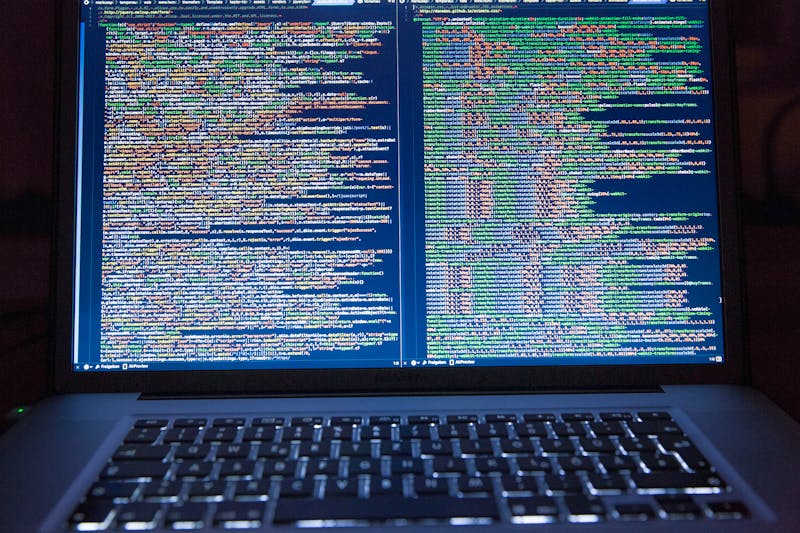
In a world where everything has gone completely digital, the integration of digital identities, Central Bank Digital Currencies (CBDCs), and Artificial Superintelligence (ASI) overseeing and managing a true “internet of everything”, human existence would be fundamentally changed. This change would permeate every aspect of life, from personal identity and financial transactions to governance and social interactions.
However, for those who choose to opt-out of this digital world, life would become not only challenging but almost impossible, drawing eerie parallels to the Biblical end-times prophecy about not being able to buy or sell without the mark of the beast.
The Digital World: Integration and Efficiency
In this hypothetical future, every person is assigned a digital ID from birth, serving as a unique identifier in a vast and interconnected digital ecosystem. This ID would be the cornerstone of one’s existence, linked to biometric data, personal history, and social records. With CBDCs replacing physical money, all transactions would be traceable, secure, and instantaneous, eliminating the need for cash and traditional banking infrastructure. The ASI, a highly advanced form of artificial intelligence, would manage this intricate web, ensuring seamless integration and efficient functioning of the “internet of everything.” This network would connect all devices, services, and infrastructures, creating a highly automated and intelligent environment where everything from household appliances to public services were interconnected and optimized.
Impacts on Daily Life
For those fully integrated into this digital world, life would be marked by unparalleled convenience and efficiency. Identity verification processes would be instantaneous, reducing bureaucracy and fraud. Financial transactions, whether purchasing groceries or securing a mortgage, would be quick and secure. Healthcare systems would be revolutionized with real-time monitoring and personalized treatment plans. Public services, transportation, and even social interactions would be streamlined, creating a society where information and resources are effortlessly accessible.
However, this utopian vision comes at a cost. The pervasive surveillance and data collection inherent in such a system would raise very serious privacy concerns. The centralization of power within the ASI could lead to authoritarian control, with individual freedoms and autonomy potentially at risk. The reliance on digital infrastructure would also make society vulnerable to cyber-attacks and technological failures.
The Plight of the Digitally Excluded
For those who choose to opt-out of this digital world, the consequences would be severe. Without a digital ID, one would effectively cease to exist in the eyes of the state and society, at least in terms of the benefits of society. Basic activities such as opening a bank account, accessing healthcare, or even proving one’s identity would become insurmountable challenges. Employment opportunities would be scarce, as most jobs would require digital integration for payroll, communication, and productivity tools. Social services and benefits would be inaccessible, as they would be administered through digital platforms.
This digital exclusion would create a new class of disenfranchised people on the outside of society, isolated from the mainstream economy and social structures. They would be forced to rely on bartering, underground economies, and self-sufficiency, reminiscent of pre-industrial times. They likely would also be rounded up and corralled into detention centers “for their own good”. The disparity between the digitally integrated and the excluded would exacerbate social inequalities and injustices, leading to an increase in tension and conflict.
Biblical Prophecy and the Mark of the Beast
The scenario of a fully digital world, where opting out makes it nearly impossible to engage in commerce or social life, sounds a lot like the Biblical end-times prophecy found in Revelation 13:16-17.
“He causes all, both small and great, both rich and poor, both free and slave, to receive a mark on their right hand or on their forehead, so that no one may buy or sell, except he who has the mark or the name of the beast or the number of his name”.
The prophecy speaks of a time when people will be required to receive a mark on their right hand or forehead, without which they cannot buy or sell. This mark, often interpreted as a symbol of allegiance to a totalitarian regime, parallels the digital ID in our hypothetical future, serving as a prerequisite for participation in society and the economy.
This clear convergence of technology and prophecy raises profound ethical and spiritual questions. It challenges us to consider the implications of absolute control and the loss of individual freedoms in a world governed by artificial intelligence and digital systems. It prompts reflection on the balance between progress and humanity, efficiency and privacy, integration and exclusion.
In a Nutshell
A world gone completely digital, with digital IDs, CBDCs, and ASI managing the “internet of everything,” would undoubtedly revolutionize human life, offering unprecedented convenience and efficiency. However, for those who choose or were forced to opt-out, life would become nearly impossible, highlighting the stark divide between the digital haves and have-nots.
Building alternative mutual aid networks now is more important than ever before. If you are someone that would choose to opt-out of such a digital world, you need to have a system and network in place, up and running, beforehand. Don’t wait until the last minute to have your plans in place. Find out how to prepare before you become one of the excluded.